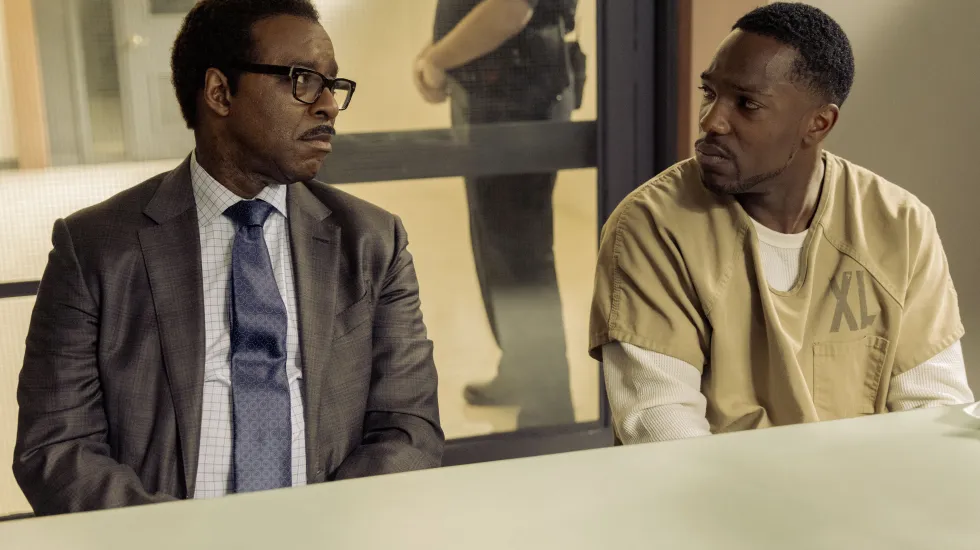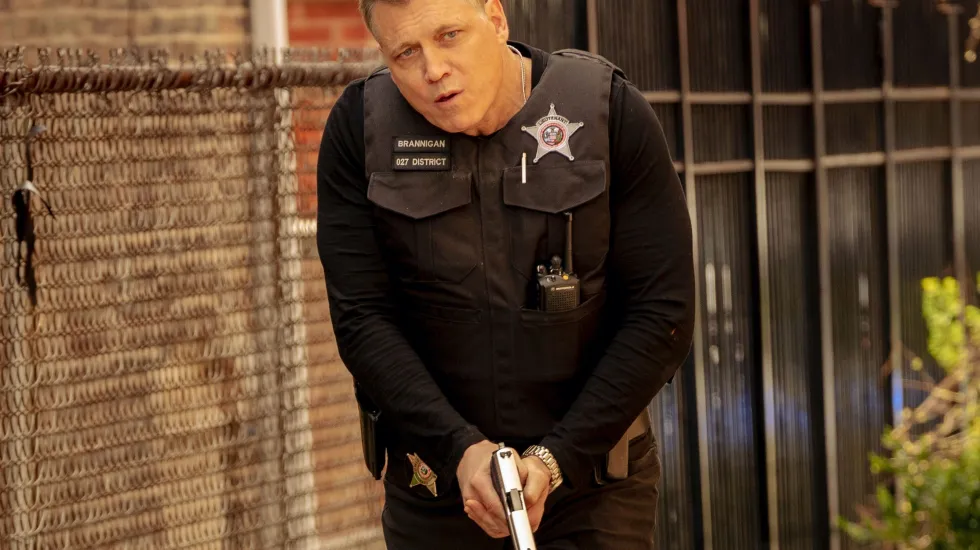
Anyone who has ever been involved with the Chicago criminal justice system from any angle—be it cop or suspect, prosecutor or public defender, judge or jury—and watches the AMC series “61st Street” will most likely nod in affirmation and recognition at the veracity at some sequences, and object to the other scenes as being sensationalized or slanted or unfair. It all depends on the worldview and experiences you bring to the viewing table.
This is a work of fiction that leans heavily into many of the real-life, racially charged, polarizing issues that have impacted our city for decades, and while the writing can sometimes be heavy-handed and a bit too preoccupied with making grand statements, the scenarios outlined in “61st Street” have a ring of authenticity and familiarity, the dialogue can be pinpoint accurate at times—and the cast is absolutely sensational, with Courtney B. Vance, Aunjanue Ellis, Tosin Cole and Holt McCallanay all turning in nomination-worthy performances.
Filmed on the South Side and at the Cinespace Chicago Film Studios, “61st Street” is an expertly crafted production, with docudrama-style cinematography that perfectly captures the feeling we’re actually in a neighborhood populated by a wide range of figures, from the parents who are doing their best to raise their children to stay out of trouble and strive to reach their potential, to the drug dealers and gangbangers lurking on far too many corners, to the cops whose vehicles carry the logo “We Serve and Protect,” which can be a legitimate promise or a mocking insult, depending on the character and motives of the officers occupying those vehicles.
The first episode premieres at 9 p.m. Sunday on AMC and streams on AMC+ and ALLBLK. Later episodes will premiere Sundays on the streaming services and a week later on AMC.
The great Courtney B. Vance gives one of his most memorable and layered performances as Franklin Roberts, a public defender who has represented some 7,000 clients over 30 years and is on the verge of retirement when a “heater” case pulls him back in. A drug raid goes horribly wrong, with a gun-wielding dealer named Rufus (Kevin Tre’von Patterson) shot and killed by police and Chicago Police Officer Michael Rossi (Patrick Mulvey) getting killed while chasing a suspect—one Moses Johnson (Tosin Cole), a track star who has earned a full college scholarship and has never been in trouble in his life but found himself in the wrong place at the wrong time.
This series of events is laid out in pulse-pounding fashion, as Moses goes on the run, the police release a screen grab from a security camera that makes him look like a ferocious killer, and the respective families of the dealer and the police officer go through the mourning process. (When the drug dealer’s mother shows up at the crime scene and is overcome with emotion, one cop says, not unkindly but matter-of-factly, “Everybody’s somebody’s baby.”)

Holt McCallany’s Lt. Francis Brannigan, who is corrupt to his very marrow but thinks of himself as a crusading superhero who maintains the uneasy peace in his district, leads the investigation and doesn’t blink at planting drugs or intimidating witnesses in his attempt to get Moses to turn himself in. As the local TV news stations carry updates on the case and Moses remains in hiding, Franklin decides he’ll take on this case as a private attorney. (“Nobody touches Moses Johnson,” declares Franklin.)
This is the main plot of “61st Street,” but the storyline expands with each episode. Aunjanue Ellis gives a powerful performance as Franklin’s wife, Martha—but this is not a standard Supportive and Long-Suffering Wife role, as we follow Martha’s run for alderman in a separate story arc, and we also learn Franklin and Martha have a teenage son named David (Jarell Maximillian Sullivan) who is autistic. On top of all that, Franklin has just been diagnosed with an aggressive form of cancer, and even as he takes on the most important case of his career, he’s dealing with sometimes crippling pain and an uncertain future.

Meanwhile, Rossi’s partner and best friend, Logan (Mark O’Brien), has come into possession of a wire recording Rossi had made—a recording that, if made public, will be hugely damaging to the department and to Brannigan in particular, and will further ramp up emotions in a city already on edge. Logan is a good cop, but he’s conflicted about what to do. These are just some of the subplots that serve to give the show an epic, wide-ranging tone, and the series format allows for breathing room. (A total of 16 episodes were filmed and will be split into two seasons.)
For some viewers, “61st Street” might be TOO familiar, too similar to far too many events we see on the local and national news. Still, this is a powerful, important, serious work, brimming with memorable scenes and unforgettable performances. It serves as a reminder of why we love Chicago with all our hearts, even though Chicago can also be the most heartbreaking of cities.







